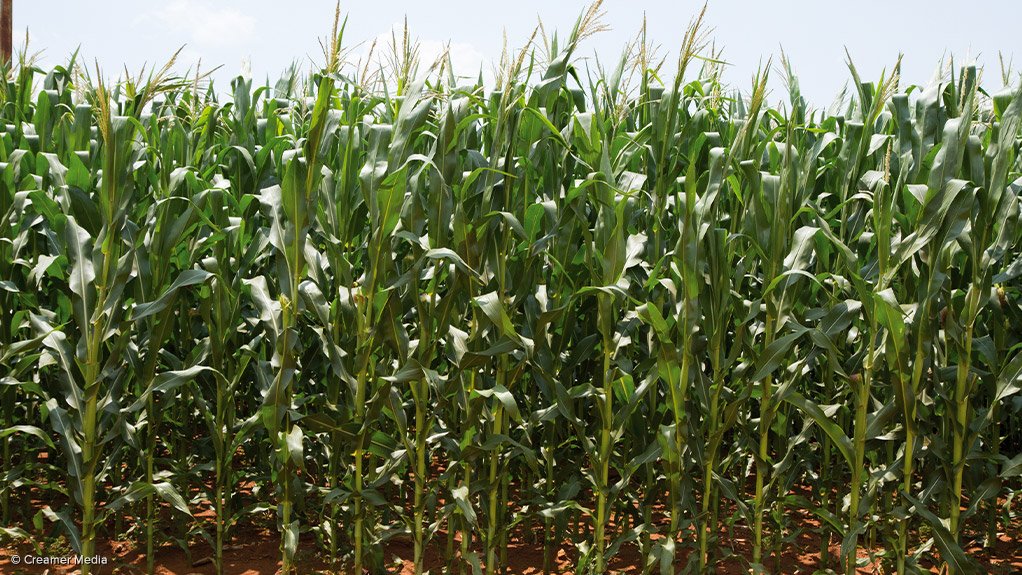Grain SA backs agri budget, new policy direction envisioned by Steenhuisen
Industry body Grain SA has declared its support for the new policy direction outlined in Agriculture Minister John Steenhuisen’s 2025/26 budget vote speech, which was presented to Parliament on July 8.
Grain SA says the budget is testament to the strategic shift towards a more focused and practical agriculture policy framework.
The organisation also lauds the realignment of the newly separated Department of Agriculture to exclusively serve the sector, which it believes presents a renewed opportunity for targeted implementation and meaningful impact.
Grain SA is particularly encouraged by the Minister’s prioritisation of biosecurity as a national imperative. The organisation has long advocated for enhanced disease surveillance and coordinated outbreak responses, not only to safeguard local production but also to secure and expand critical export markets.
Livestock biosecurity has a direct impact on the grain and oilseeds sector given livestock’s role as a major consumer of feed inputs; therefore, investment in livestock health infrastructure ultimately strengthens the entire agriculture value chain.
Moreover, Grain SA says it appreciates Steenhuisen’s renewed focus on a modern and progressive legislative environment, including amendments to the Fertilisers, Farm Feeds, Agricultural Remedies and Stock Remedies Act.
“We urge that this legislative review prioritise the protection of essential inputs currently available locally and supports faster access to innovative technologies that enhance productivity and sustainability.”
Additionally, the development of a regulatory framework for new breeding techniques is crucial if South Africa is to maintain global competitiveness in plant genetics and sustainable crop development, Grain SA states.
The organisation also welcomes the emphasis on market access and trade facilitation, including the expansion of access to Asia and the Middle East, and the defence of existing agreements such as African Growth and Opportunity Act and the Economic Partnership Agreement.
“However, we must reiterate the urgent need for stronger protective measures for local wheat producers, particularly considering rising volumes of subsidised imports.
“Coordinated efforts across government departments are essential to address the legislative and policy disconnects that undermine local competitiveness,” Grain SA notes.
While the focus on climate change adaptation and climate-smart agriculture is necessary and applauded, Grain SA remains concerned that multi-peril crop insurance was not sufficiently addressed in the speech.
“Affordable and accessible insurance products remain a cornerstone of climate resilience and are vital to creating a level playing field with global counterparts who benefit from State-supported schemes.”
Grain SA also acknowledges the Minister’s support for blended finance mechanisms and the commitment to expand access to funding for youth, women and climate-smart initiatives.
The organisation explains that these mechanisms play an important role in enabling inclusive growth and transformation, particularly where investment is needed most – on farms, in research and development and in rural economies.
RESEARCH FOCUS
For Grain SA, the department's 2025/26 budget reflects a strong and encouraging commitment to research that will positively impact the grain farming community and national food security.
Grain SA’s research strategy aligns with the department’s commitment to impactful and future-oriented research.
The department’s prioritisation of biosecurity – through the establishment of a Biosecurity Council, National Biosecurity Compact and investments in surveillance and infrastructure – offers critical opportunities for research to guide prevention strategies, outbreak modelling and rapid response planning, Grain SA says.
These developments are particularly relevant for grain producers, given the interconnected risks to input supply chains and animal feed markets.
The focus on climate adaptation and resilience also strongly complements Grain SA’s ongoing research into conservation agriculture, soil health and drought-resilient cultivars.
The implementation of the Climate Change Adaptation and Mitigation Plan offers a chance to bridge national policy with on-farm innovation, field trial data and scalable practices to manage resource use efficiently and support producer sustainability.
PARTNERSHIPS & EDUCATION
“We commend the department’s continued support for public-private partnerships as an engine for applied research impact. Grain SA’s collaboration with the Department of Science, Technology and Innovation through the Agricultural Bio-economy Innovation Partnership Programme demonstrates the value of collaborative innovation – from cultivar development to precision agriculture and sustainable production systems,” the organisation says.
Grain SA adds that its strategic partnership with the Agricultural Research Council is similarly vital in providing the scientific foundation needed to meet current and future challenges in the grains sector.
The integration of agricultural colleges into the higher education system, alongside the promotion of agri-tech skills development, aligns with Grain SA’s long-term vision for Nampo-Tech.
“This new Grain SA initiative will focus on developing future-ready agricultural professionals equipped to support innovation in grain production, mechanisation and data-driven decision-making.
“We view the department’s education and training objectives as a strong enabler of our efforts to position Nampo-Tech as a centre of excellence in practical training and agricultural innovation,” Grain SA concludes.
Article Enquiry
Email Article
Save Article
Feedback
To advertise email advertising@creamermedia.co.za or click here
Announcements
What's On
Subscribe to improve your user experience...
Option 1 (equivalent of R125 a month):
Receive a weekly copy of Creamer Media's Engineering News & Mining Weekly magazine
(print copy for those in South Africa and e-magazine for those outside of South Africa)
Receive daily email newsletters
Access to full search results
Access archive of magazine back copies
Access to Projects in Progress
Access to ONE Research Report of your choice in PDF format
Option 2 (equivalent of R375 a month):
All benefits from Option 1
PLUS
Access to Creamer Media's Research Channel Africa for ALL Research Reports, in PDF format, on various industrial and mining sectors
including Electricity; Water; Energy Transition; Hydrogen; Roads, Rail and Ports; Coal; Gold; Platinum; Battery Metals; etc.
Already a subscriber?
Forgotten your password?
Receive weekly copy of Creamer Media's Engineering News & Mining Weekly magazine (print copy for those in South Africa and e-magazine for those outside of South Africa)
➕
Recieve daily email newsletters
➕
Access to full search results
➕
Access archive of magazine back copies
➕
Access to Projects in Progress
➕
Access to ONE Research Report of your choice in PDF format
RESEARCH CHANNEL AFRICA
R4500 (equivalent of R375 a month)
SUBSCRIBEAll benefits from Option 1
➕
Access to Creamer Media's Research Channel Africa for ALL Research Reports on various industrial and mining sectors, in PDF format, including on:
Electricity
➕
Water
➕
Energy Transition
➕
Hydrogen
➕
Roads, Rail and Ports
➕
Coal
➕
Gold
➕
Platinum
➕
Battery Metals
➕
etc.
Receive all benefits from Option 1 or Option 2 delivered to numerous people at your company
➕
Multiple User names and Passwords for simultaneous log-ins
➕
Intranet integration access to all in your organisation




















